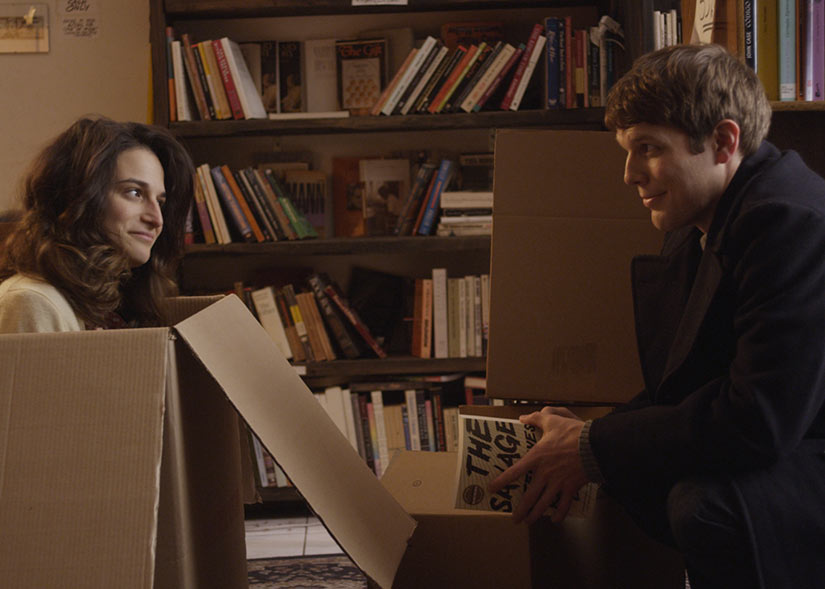For whatever stupid reason, there was this general stigma in mainstream entertainment that women weren’t funny. Obviously, this was just some stupid misconception as iconic comediennes like Roseanne, Ellen, Lucille Ball, Carol Burnett, and other female luminaries were just as funny (if not more so!) than their male counterparts. Nevertheless, this stigma floated around for the longest time, and it wasn’t until fairly recently that people realized that women are, in fact, funny. Thanks to shows and films like 30 Rock, Parks and Recreation, and Bridesmaids, we have more contemporary examples that the ladies can bring in the laughs and the money the same way the guys have been.
I say all of this as a preface for my review of Obvious Child because I feel that Gillian Robespierre’s film is just the type of indie comedy we need more of that transcends who’s in the lead, male or female. Obviously, the success of Obvious Child is well-balanced thanks to Jenny Slate’s performance, but I’ll get more into that later. Simply put: If you find a theater playing Obvious Child, I highly recommend checking it out. Now let me attempt to explain why.
[youtube id=”r2GN3wdfqbA”]
Obvious Child
Director: Gillian Robespierre
Rating: PG-13
Release Date: June 6, 2014
Donna Stern (Slate) is an aspiring stand-up comic who is not afraid to share a bit too much of her life on stage in the name of humor. Unfortunately, this causes her boyfriend to break up with her just weeks before Valentine’s Day. To make matters worse, she soon gets laid off from her book store job due to the store’s closing. One night, she forms a connection with a man at a bar, Max (Jake Lacy), who is Donna’s complete opposite. Their night of revelry ends with Donna becoming pregnant, forcing her to make a life-affirming decision that she may or may not be ready to make.
In recent memory, Juno stands out as the indie darling that took something like unwanted pregnancies and made it the focal point of a whimsical, quirky dramedy. Whether you’re a fan of Juno or not, it represented a modern film that allowed us to take a look at a somewhat social taboo such as unwanted pregnancies and made us truly ponder the topic without getting too political or preachy. However, whereas Juno hid behind irreverent non-sequiturs and pop-culture references out the wazoo, Obvious Child forms a more realistic and human connection between its subject matter and its audience.
As I mentioned previously, this is thanks to the combination of writer/director Robespierre’s vision and Slate’s performance. Slate evokes an everywoman charm that I think anybody can relate to. Obviously, I’m not a woman, but I feel that some of the conversations and jokes Donna has throughout the film is similar to the types of things my friends and I talk about, no matter how awful or disgusting they are. In a way, Obvious Child shares the same ethos that Judd Apatow films do, but better grounded and more human.
The downside to this connection, unfortunately, is that the characters both surrounding and opposite the lead, more specifically Lacy’s Max, feels one-dimensional and not a fully-realized character, but someone who’s only meant to serve as a foil/opposite to Slate’s Donna. Here we have the rambunctious, wild, emotionally-broken Donna set opposite from the well-put together, straight card Max. It’s a character trope that exists in almost all comedies, and it’s one that I wish the genre will move away from.
Regardless, I think Obvious Child is one of the better films I’ve seen this year. Jenny Slate’s performance in the film shows so much promise from both a comedic and dramatic perspective that I can imagine (and hope!) she’ll eventually find herself in the spotlight of successful and talented comediennes on the same vein as the aforementioned actresses in my introduction. Writer/director Gillian Robespierre, meanwhile, has a knack for capturing not only the human side of comedy, but the comedic side of humanity, and I can’t wait to see what she does next.


